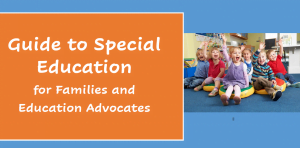School Mental Health
Families Together is proud to be part of the Kansas School Mental Health Initiative (SMHI). This important initiative provides communities – school, parents and community partners – with information to support the social, emotional, behavioral, and mental health needs of children within a multi-tier system of supports.
Below, you will find products developed in partnership with our fellow human service organizations in Kansas, as well as links to additional resources.

Families Together School Mental Health Resources
Adverse Childhood Experiences (ACEs)
Trauma
Trauma is an emotional response to an intense event that threatens or causes harm. The harm can be physical or emotional, real or perceived, and it can threaten the child or someone close to him or her. Trauma can be the result of a single event, or it can result from exposure to multiple events over time.
Trauma & Traumatic Stress Resources
- Families and Caregivers: The National Child Traumatic Stress Network
- Facts on Traumatic Stress and Children with Developmental Disabilities
- Signs of Trauma
- The Road to Recovery: Supporting Children with Intellectual and Developmental Disabilities who have Experienced Trauma
- Through Our Eyes: Children, Violence, and Trauma (Video)
- Trauma and Violence
- What is Childhood Trauma?
- What is Childhood Trauma? What are Traumatic Events?
Trauma: How you can help.
- 10 Things About Childhood Trauma Every Teacher Needs to Know
- Helping Children Cope After a Traumatic Event: A Recovery Guide for Parents, Teachers, and Community Leaders
- Parenting a Child Who Has Experienced Trauma
- Sesame Street in Communities: Traumatic Experiences
- Supporting Students Experiencing Childhood Trauma: Tips for Parents and Educators
- Trauma Sensitivity During the IEP Process
- Trauma-Informed Practices: Considerations for the IEP Meeting
Resilience
Resilience is the ability to bounce back from frustrations and to recover from setbacks. Resilient individuals adapt to change, stress or problems. They are able to take things in stride. The result of this bouncing back is a feeling of success and confidence.
Mental Health Fact Sheets (TASN)
- Mental Health Disorders of Childhood and Adolescence
- Anxiety Disorder Fact Sheet
- Attention-Deficit/Hyperactivity Disorder (ADHD) Fact Sheet
- Autism Spectrum Disorder (ASD) Fact Sheet
- Bipolar Disorder Fact Sheet
- Borderline Personality Disorder (BPD) Fact Sheet
- Conduct Disorder Fact Sheet
- Depressive Disorders Fact Sheet
- Eating Disorders Fact Sheet
- Fetal Alcohol Spectrum Disorders (FASDs) Fact Sheet
- Nonsuicidal Self-Injury (NSSI) Fact Sheet
- Obsessive-Compulsive Disorder (OCD) Fact Sheet
- Posttraumatic Stress Disorder (PTSD) Fact Sheet
- Reactive Attachment Disorder (RAD) Fact Sheet
- Schizophrenia Fact Sheet
- Tourette Syndrome (TS) Fact Sheet
Disability Specific
Suicide
- Suicide Risk Factors and How to Help
- Youth Suicide Awareness (Families Together, Inc. and KPIRC)
Additional Resources
You may find the links below to helpful in your search for information about this topic. To view the links under a topic, click the plus sign (+) on the right to open the full list. The links will open in a new window.
Kansas Resources
Other Resources
The TASN School Mental Health Initiative (SMHI) is funded through a grant from the U.S. Department of Education (#H323A17006) and is administered by the Kansas Department of Education.
Still have questions?
We are here to help.
Our services are free to families that include a child or youth with learning, behavioral, and/or health challenges. Our staff are also parents or family members of children with disabilities and/or special health care needs, so we understand that the process can be overwhelming and confusing at times.




